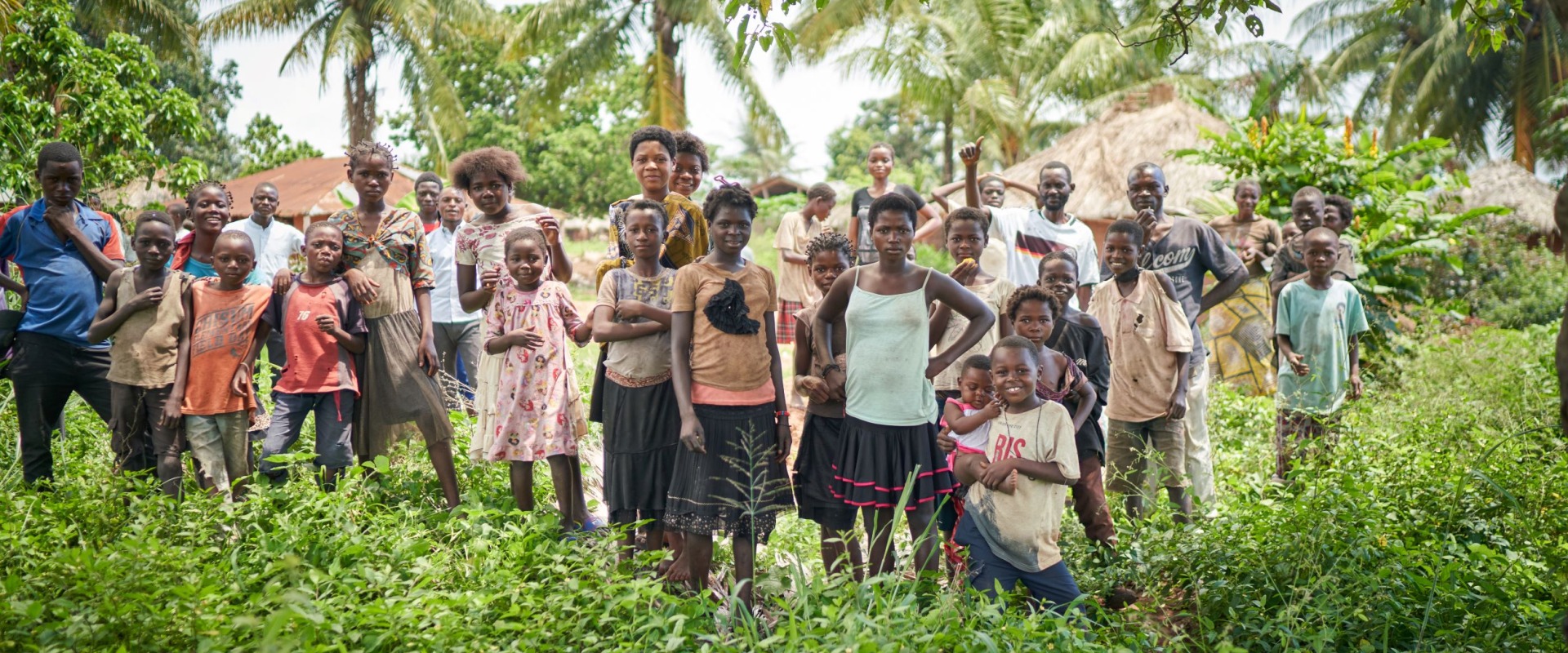
GIVE THIS RAMADAN

The Kasai region of the Democratic Republic of Congo has faced a severe hunger crisis for three decades, and there is no end in sight. Children are particularly vulnerable to hunger, and thousands are dying of malnutrition, dehydration, and illnesses exacerbated by weakened immune systems every year.
Years of political unrest and conflict in Kasai have displaced people and caused countless losses of both lives and livelihoods. Historically, Kasai was home to a lucrative diamond mining and export industry. However, due to governmental instability and violence, communities were forced to flee their homes and leave their mining jobs behind. Farms and villages were completely deserted.
Now, the people of Kasai are returning to a home they no longer recognize – only echoes of their villages remain. The returnees bring little with them and face severe food insecurity, illness, and acute malnutrition. In 2020 and 2021, 1.9 million people in Kasai suffered from food insecurity.

Additionally, communities are struggling to cope with the trauma of past violence. The Kamwina Nsapu Rebellion, which ravaged the province from 2016 through 2019, resulted in hundreds of deaths. State security forces clashed with the Kamwina Nsapu militia, forcing millions to desert their homes and seek safety. Several human rights violations took place during this war—permanently scarring many civilians and leaving them with mental health concerns.
As displaced people return to their communities, their struggles do not end when they reach home. Despite their pleas, they were not given the support they so desperately needed while they were displaced or to help them rebuild their homes. Many were unable to access lifesaving medicine and food, leaving them among the country’s most vulnerable populations.
Action Against Hunger partners with local communities in Kasai to find sustainable solutions for food insecurity. Together, we work to create a peaceful environment—free of hunger, conflict, and pain—where the human rights to clean water, nutritious food, and necessities are guaranteed. With support from the European Union, we’re striving towards a more hopeful future for Kasai.

STRENGTHENING LIVELIHOODS
Kasai is one of the country’s main producers of diamonds. Although this revenue has historically fueled the economy, the industry does little to help the people living there. The job is dangerous, the workers are paid very little, and sustainable agricultural practices are often disregarded.
As a result of the dominance of the mining industry, farming communities have lost the agricultural knowledge that kept their ancestors alive. Instead of learning to manage farms, young people instead go to work in the diamond mines. Kasai imports most of its food from other provinces.
When Action Against Hunger first partnered with communities in Kasai, many people still lacked essential agriculture knowledge. Families had to transform and learn to grow crops on their land, feed themselves, and protect their livelihoods.
Action Against Hunger’s resilience program helps families in Kasai to strengthen their livelihoods—and to learn how to not just survive, but thrive.

More than 400,000 people have participated in the program so far. Munanza Mulamba Salomon has seen her life transform before her very eyes. With our help, she began breeding goats and earning her own revenue.
“Action Against Hunger came after the war that ravaged our community,” she remembers.
Munanza has shared her breeding knowledge with her neighbors. With the extra revenue, the people of Kasai can now feed their family, buy clothes for their children, rebuild their homes, and regain their livelihoods.
Action Against Hunger is spearheading other initiatives in Kasai: our teams distribute seeds for agricultural development, teach technical skills relating to farming and livestock, and train villagers in how to save their money through Village Savings and Loans Associations. This project helps villagers learn business management and supports them in making their projects more sustainable and secure.
“We started with the Village Savings and Loan Associations project,” said Kalala Muradi Francis, a Kasai villager. “Then, we learn ways to earn more income. It changed my life…the children’s schooling become easier. Now, we are looking to build ourselves a new home.”

ENSURING FOOD SECURITY
Food insecurity is not only caused by lack of food. It can also be an onslaught of other issues, all intertwined—from dirty water to disease to conflict to inequality. In Kasai, Action Against Hunger works alongside community members to establish and improve water sources, build wells for irrigation, and raise awareness on good nutrition and healthy hygiene.
All villagers are invited to attend Action Against Hunger’s workshops to learn how to improve their family’s health. Nutrition workshops, for instance, teach local Kasai people about the importance of diversified diets and choosing local foods.
“We are here in the community educating mothers about nutrition and hygiene,” says Sabine Malu Pauline, Nutrition Education and Hygiene Awareness Manager for Action Against Hunger. “It is key to preventing malnutrition.”
One of our top priorities in Kasai has been improving access to clean water and safe sanitation. Waterborne diseases are often the underlying causes of malnutrition. Many malnutrition cases are related to diarrhea or intestinal diseases from contaminated water.
“We used to suffer from the fact that we didn’t have drinking water,” says Mbombo Kapinga Madelina, a villager from Lupombo. “The water we had was full of microbes that made us sick. Today, we are happy because we finally have access to water that does not carry diseases.”
After the war, Mbombo and her neighbors did not return to the home they once knew. But together, they can build the home they’ve always dreamed of.
Join our community of supporters passionate about ending world hunger.